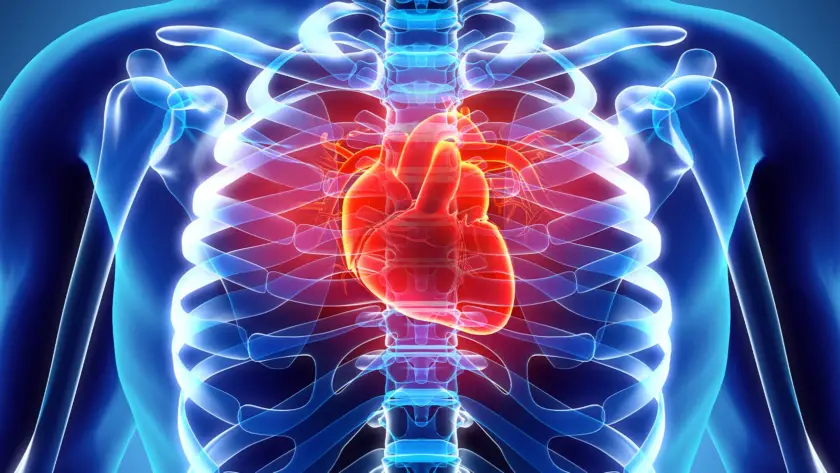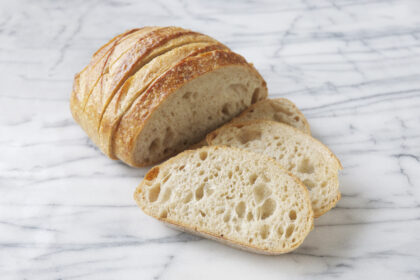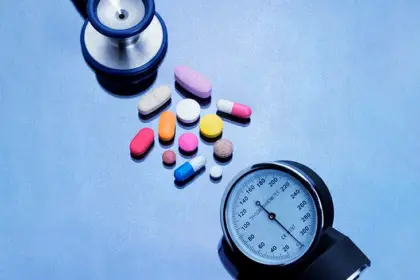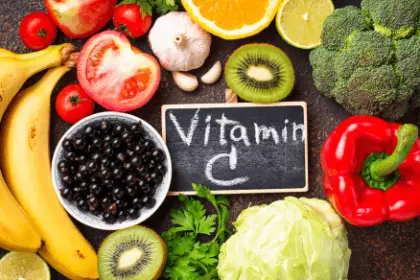Heart disease and stroke continue to be two of the leading causes of death worldwide, taking millions of lives each year. A major contributing factor is atherosclerosis, the buildup of plaque in the arteries caused by high cholesterol, inflammation, and calcification.
This buildup restricts blood flow and reduces oxygen supply to the heart and brain, significantly increasing the risk of heart attack, stroke, and other cardiovascular events. Fortunately, eating certain foods that help break up and remove arterial plaque can reduce your risk by as much as 25%, according to numerous studies.
Making smart dietary choices is one of the most effective ways to prevent and even reverse cardiovascular disease.
In this article, we will discuss 5 powerhouse foods that research has shown can break up and eliminate plaque naturally. Consuming more of these foods has been clinically proven to improve cardiovascular health by reducing inflammation, balancing cholesterol levels, and preventing plaque buildup in the arteries.
What is Arterial Plaque and How Does it Form?
Arterial plaque refers to the buildup of fatty deposits, cholesterol, calcium, and other substances inside the arteries. This buildup is also known as atherosclerosis. It happens when cholesterol-carrying LDL particles penetrate the artery wall and become oxidized, triggering inflammation.
Immune cells arrive to clean up the damage but end up accumulating and forming a plaque. Over many years, these plaques grow and harden, narrowing the arteries and restricting blood flow. Plaques can also rupture, causing blood clots that can lead to heart attack or stroke. Managing risk factors like high cholesterol through medication, diet, exercise, and not smoking can help prevent plaque buildup and its complications.
Small Improvements in Plaque Buildup Have Major Benefits
Even slight decreases in the amount of plaque buildup can translate to sizable reductions in risk of cardiovascular events like heart attack and stroke. A recent major meta-analysis found that lowering arterial plaque levels by just 1% was associated with up to a 25% reduction in the odds of having a major adverse event like a heart attack or stroke.
This demonstrates that even incremental improvements in clearing out blocked arteries can have an outsized positive impact on cardiovascular health. Experts theorize this sizable risk reduction occurs because even minor changes to plaque volume and composition helps stabilize lesions and makes them less prone to rupture.
Rupture of vulnerable plaque causes most heart attacks and strokes. So small gains in reducing plaque accumulation and altering its composition to make it more stable go a long way in preventing catastrophic cardiovascular events.
Prescription Drugs Called Statins Should Be Used As A Last Resort
Statins are supposed to work by lowering LDL or “bad” cholesterol in the bloodstream, but they can come with some dangerous side effects.
These Side Effects Include:
- Muscle pain and weakness – Statins can cause myalgia (muscle pain) or myopathy (muscle disease), which can progress to a rare but serious condition called rhabdomyolysis that causes muscle breakdown. Patients should report unexplained muscle pain to their doctor.
- Increased diabetes risk – Some studies suggest statins may slightly increase risk of type 2 diabetes. Patients with diabetes risk factors should monitor blood sugar closely when on statins.
- Liver damage – Statins can raise liver enzymes in some people, so periodic liver function tests are recommended. Very rare cases of liver failure have been reported.
- Digestive issues – Stomach pain, nausea, diarrhea and constipation have occurred with statins. Taking the dose at night may help reduce digestive side effects.
- Neurological effects – Headaches, dizziness or sleep disturbances have been reported with some statins. Cognitive issues like memory loss are possible but not proven.
- Interactions – Statins can interact with certain medications. People taking multiple prescriptions should discuss potential interactions with their doctor and pharmacist.
While lifestyle changes like diet and exercise should be the first line of defense, medication like statins may be necessary for those at high risk of cardiovascular disease. Patients should speak with their doctor about whether cholesterol medication is appropriate for their situation.
5 Powerhouse Foods That Reduce Arterial Plaque & Risk Of Heart Disease
Improving your diet by eating more plaque-busting foods is one of the best ways to reduce your risk of chronic diseases like heart attack and stroke. The 5 foods we will cover have been shown to bust arterial plaque, improve blood flow, lower blood pressure, and decrease inflammation – all leading to a healthier heart and circulatory system.
By making simple dietary changes to include more of these atherosclerosis-fighting foods, you can reduce your risk of cardiovascular events by up to 25% and add healthy years to your life.
1. Fatty Fish
Fish like salmon and mackerel are rich in omega-3 fatty acids, which reduce inflammation and lower triglycerides. This improves cholesterol ratios and makes plaque less likely to rupture. Aim for at least two 3-ounce servings per week. Try salmon tacos or baked cod with veggies.
2. Walnuts
Walnuts contain fiber, magnesium, and the plant-based omega-3 alpha-linolenic acid, all of which improve blood vessel function. Snack on a handful daily or add walnuts to salads and yogurt.
3. Green Tea
The antioxidants in green tea called catechins reduce LDL cholesterol oxidation, a key trigger of plaque buildup. Drink 2-3 cups per day. Opt for fresh brewed over bottled to get the most benefits. Click Here To Check out Micro Ingredients Organic Matcha Green Tea For Superior Quality & Health Benefits!
4. Avocados
Avocados are full of unsaturated fats that raise protective HDL cholesterol and lower triglycerides. Eat half an avocado daily in smoothies or on toast.
5. Beans
Beans are loaded with soluble fiber, which binds to cholesterol and removes it from the body before it can clog arteries. Eat a 1/2 cup serving daily added to soups, chilis and dips.
Recent Studies Show Adding Superior Omega-3 Krill Oil To Your Daily Regimen Can Reduce Heart Disease Risk by 25%
When it comes to supporting cardiovascular health, the source of omega-3 fatty acids matters. One type of omega-3 oil that research shows is particularly beneficial for the heart is derived from tiny Antarctic krill.
Multiple studies have found supplements containing krill oil to significantly improve heart health markers, including:
- Lowering blood pressure
- Reducing inflammation
- Decreasing arterial plaque buildup
- Improving HDL and LDL cholesterol levels
- Reducing blood sugar
One double-blind trial published in the journal Alternative Medicine Review found that taking just 1-3 grams of krill oil per day led to a 10-25% improvement in cholesterol profiles along with a significant decrease in blood pressure and blood sugar levels. Another study revealed that consuming 2 grams of krill oil daily for 12 weeks decreased bad LDL cholesterol by 10% and blood sugar by 12%.
Experts theorize krill oil is more beneficial than traditional fish oil due to its unique phospholipid structure. The omega-3 fatty acids in krill oil (primarily EPA and DHA) are carried within phospholipids rather than triglycerides. This allows for enhanced absorption, especially to the brain and heart tissues that rely heavily on phospholipids.
Additionally, krill oil contains the antioxidant astaxanthin, giving it greater stability and bioavailability compared to fish oil. It also eliminates the fishy taste and repeat that puts many people off traditional omega-3 supplements.
Take Control Of Your Heart Health With Micro Ingredients Antarctic Krill Oil.
These premium soft gels provide 1,000mg of pure, sustainable krill oil per serving, including 500mg of vital omega-3 fatty acids.
Micro Ingredients Antarctic Krill Oil is rigorously tested for heavy metals, pesticides and toxicity to ensure the highest quality krill oil. With an eco-friendly packaging and enteric coating for optimal potency, it’s the smart choice for supporting your cardiovascular health.
The Key Takeaway
In conclusion, small reductions in arterial plaque buildup can lead to significant decreases in risk of adverse cardiovascular events like heart attack and stroke. Medications like statins are effective at lowering LDL cholesterol and stabilizing plaque when diet and lifestyle alone are not enough. However, making healthy dietary choices should be the first line of defense.
In particular, focusing on heart-healthy foods containing omega-3s, fiber, antioxidants, and unsaturated fats can help bust arterial plaque and promote cardiovascular wellbeing. Foods like fatty fish, avocados, walnuts, beans, and green tea have been clinically proven to reduce plaque naturally. Adding more of these superfoods to your meals and snacks is a powerful way to improve heart health, especially when paired with regular exercise.
While plaque buildup is a gradual process, the meta-analysis proves even incremental changes of 1% can reduce chances of heart attack and stroke by up to 25%. This demonstrates that small, consistent lifestyle tweaks to address the root causes of atherosclerosis can have a big impact over time. Adopting healthy habits is the most effective way to prevent clogged arteries and their devastating complications.






